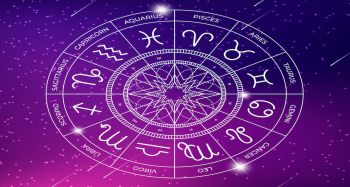Archetypes can fall under the classic archetypes of the plot. These are literary devices that have been argued to be the basis of all storytelling. These literary themes intersect with the philosophical and psychological representations of archetypes, most notably postulated by Carl Jung.
In psychic culture, the archetype is a representation of the underlying character on which the personality is built. That is to say, a person who is a teacher, a fighter, or a rebel, and how they develop as a person based on that foundational archetype. Now do not take that last statement the wrong way. You are not a single archetype, but rather an amalgamation of all of them. That’s right, you are all archetypes at once. However, one archetype outshines them all to make up the bulk of «you» in a major way.
These archetypes inform behavior and can elevate psychic ability when practiced alongside the archetypal traits a gifted psychic possesses.
The archetype is characterized by three overarching categories, which are further delineated into 12 families. Within each family, there are five unique archetypes.
Archetype Categories
The three archetype categories that contain all archetype families are split into the Ego, Self, and Soul. The 12 families they represent are:
| Ego | Soul | Self |
| Innocent | Explorer | Jester |
| Orphan/Citizen | Rebel | Sage |
Hero | Lover | Magician |
Caregiver | Creator | Ruler |
Over time, scholars have postulated and assigned each archetype family a set of five specific archetypes. Those families and the archetypes they represent are:
- Caregiver family:
- Caregiver
- Angel
- Guardian
- Healer
- Samaritan
- Citizen Family:
- Citizen
- Advocate
- Everyman
- Networker
- Servant
- Creator Family:
- Creator
- Artist
- Entrepreneur
- Storyteller
- Visionary
- Explorer Family:
- Explorer
- Adventurer
- Pioneer
- Generalist
- Seeker
- Hero Family:
- Hero
- Athlete
- Liberator
- Rescuer
- Warrior
- Innocent Family:
- Innocent
- Child
- Dreamer
- Idealist
- Muse
- Jester Family:
- Jester
- Clown
- Entertainer
- Provocateur
- Shapeshifter
- Lover Family:
- Lover
- Companion
- Hedonist
- Matchmaker
- Romantic
- Magician Family:
- Magician
- Alchemist
- Engineer
- Innovator
- Scientist
- Rebel Family:
- Rebel
- Activist
- Gambler
- Maverick
- Reformer
- Sage Family:
- Sage
- Detective
- Mentor
- Shaman
- Translator
- Sovereign Family:
- Sovereign
- Ambassador
- Judge
- Patriarch
- Ruler
Identifying Your Archetype
Now that you understand the structure and source of archetypes, the next part in your journey of self-discovery is to identify which archetype you best represent. In this part of your journey, you may be forced to acknowledge a life lived unfulfilled or even in service to another’s idea of who and what you are. These truths can be hard to acknowledge, but you may find your life considerably improved as a result.
In short, your archetype is the underlying personification of the thoughts, actions, and relationships you are drawn to. This will manifest in the way you perceive interactions, news, and events, how you respond to those, and the potential you envision beyond what you can see, hear and feel in the now.
The formal characterization of this quality can be distilled to the concept of embedded character. That said, the archetype is not absolute. Rather, it is the dominant set of beliefs, values, and behaviors that govern your path through life.
Now, it’s time to consider yourself ad those around you. You should be able to identify very obvious characteristics of your own and the personalities of those around you.
Are you boisterous, competitive, and a born leader? What about a compassionate, nurturing loner? With these examples, you should be able to see where we are going with this exercise. Certainly, there are people in your life who have very distinct personality traits that fit nicely into any of the archetype families. Some may not be so obvious, but this is the first step in that journey of discovery.
Connecting the traits, you see to the archetype family and their associated «child» archetypes will give you the insight you seek in identifying your psychic archetype.
Once you’ve got that knowledge, what’s next? Well, the next step in actualizing your archetype and feeding those traits is what makes up how you use that archetype to your advantage and build the most effective «you». In short, play to your strengths and you will develop quickly, with a strong foundation, and others will gravitate towards your superior understanding of what makes you unique and enhances your own innate psychic energies.
How To Use Your Archetypes Effectively
While it may not be immediately apparent how to use your archetypes to the greatest benefit, a little bit of practice will have you traveling down the right path in no time.
Consider yourself. Do you have innate physical prowess? Do you rely on honor and integrity to showcase your reliability to others? You may very well be a warrior archetype. If that is the case, play to this strength. Continue your physical training, take care of your body, and lead in your field, be it in a team setting or individual pursuits.
Maybe you are more intellectually stimulated by trivia, mystery, and history. Well, you may very well be a Detective archetype. Feed your curiosity and hunger for revelation by reading, completing puzzles, and working to unravel questions in search of an answer.
These are just two examples of what it means to play to your strengths and use your archetype effectively. Keep in mind that total investment in a single area will leave you weak in others. Balance is key in maintaining a healthy psychic profile. What you invest in your dominant archetype should be invested in an equal measure spread across your supporting archetypes. One such example can be found again with the warrior archetype. If you focus on yourself, your relationships may suffer, or you’ll feel unfulfilled if you cannot achieve what your ego seeks to. Consider feeding your caregiver archetype by coaching up-and-coming warriors, or your intellectual archetype by reading about the science behind a sport or physical activities.
With your newfound knowledge, you should have no trouble identifying your dominant archetype, investing in its growth, and supporting the archetypes that will make you a well-rounded individual.

 Clairaudience – the psychic power of clear hearing
Clairaudience – the psychic power of clear hearing.jpg?v=1615734087) The Psychic Vampire and How To Avoid Being a victim
The Psychic Vampire and How To Avoid Being a victim













